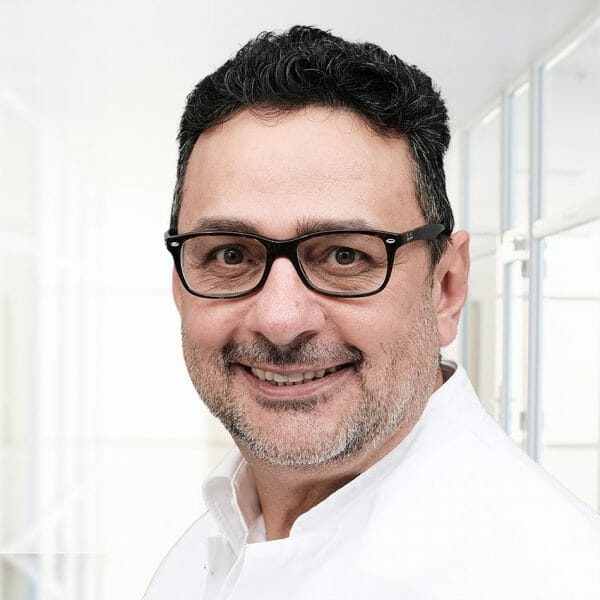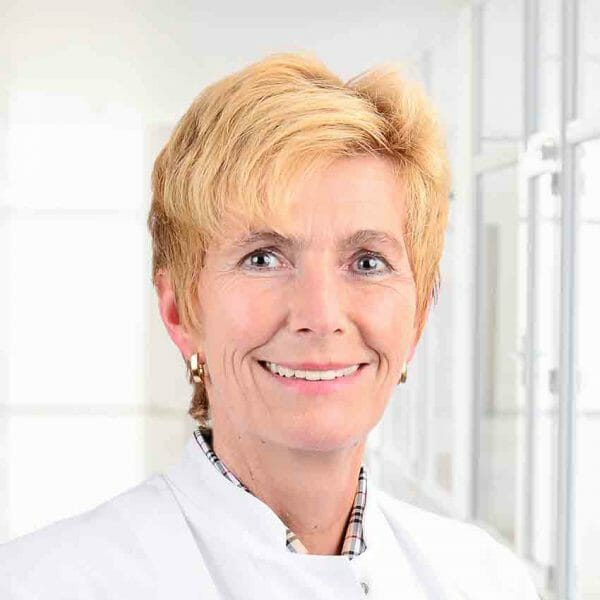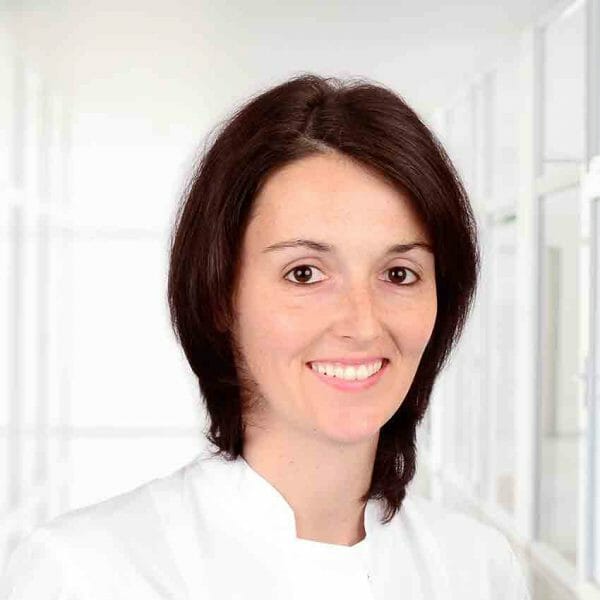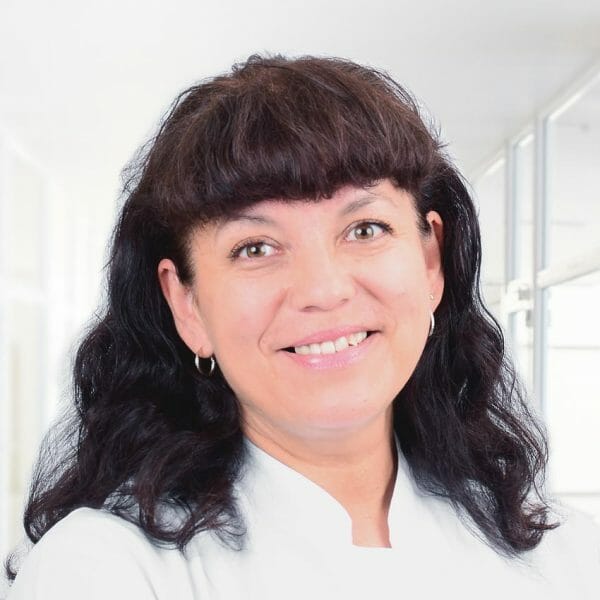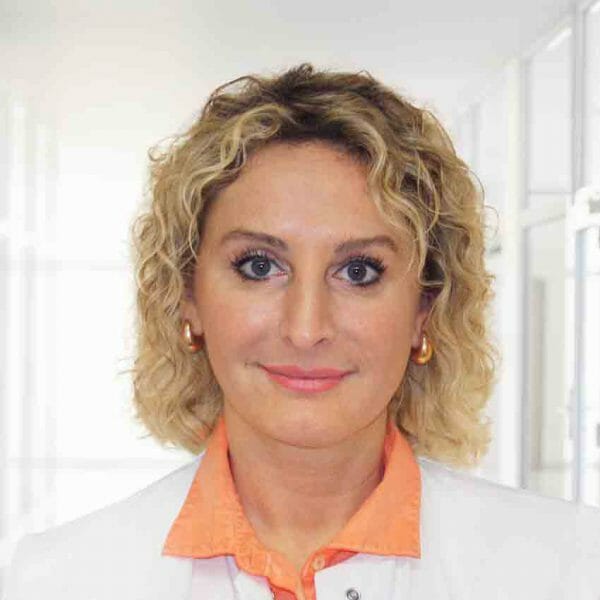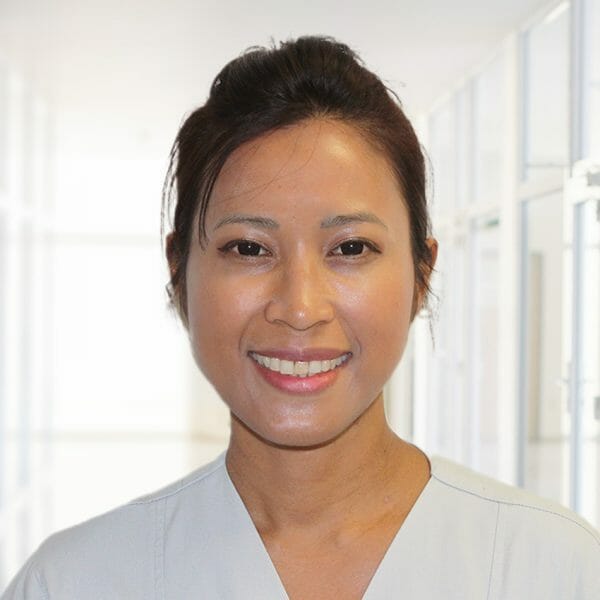As of January 1st, 2022, Muayyad Al-Alime is the new Chief Physician of Gynecology and Obstetrics at Nardini Klinikum St. Johannis in Landstuhl.
What is particularly important to you in your work?
Apart from professional qualification and good work, interpersonal relations are important to me. The patients should feel safe and well cared for in all respects, medical as well as personal. That’s why I like to be their point of contact, both before a delivery or procedure and during me, the trust between patient and doctor is essential, because it is the foundation of treatment.
Which new methods do you bring to Landstuhl?
Generally I’d like to expand laparoscopic surgery, because this type of surgery is less strenuous for the patient and results in a faster recovery and a shorter hospital stay. Laparoscopic sacral colpopexy, for example, can be used to treat a descent or prolapse of the vagina, the cervix, or even the uterus. In future we’ll also perform total hysterectomy by laparoscopic surgery, which has not been offered in Landstuhl so far. In addition, we’ll offer laparoscopic myoma nucleation, endometriosis remediation, and chromotubation for women who want to become pregnant.
Prolapse belongs to the area of urogynecology, is this a specialty of yours?
In any case it is a part of gynecology which I consider to be very important. Nobody likes to talk about incontinence and prolapse, it’s still very taboo. In this area, women accept a lot of discomfort, because they think it’s just part and parcel of getting older. They unnecessarily lose quality of life due to this. Based on thorough diagnostics, there are good treatment options for many conditions, it’s not necessary to proceed to surgery immediately. In this regard I want to raise awareness through presentations and conversations. Some types of incontinence can be treated pharmaceutically or with physical exercises, other can be treated surgically. When surgery is necessary it is my concern to make it as gentle as possible for the patient and restore her lost quality of life.
Are there other areas of gynecology in which you particularly specialize?
Senology, or breast cancer therapy and breast reconstruction, is my special passion. I’ve been a certified senior breast surgeon for many years. In addition to standard procedures, I conduct subcutaneous mastectomies and skin-sparing mastectomies with immediate reconstruction using breast implants. I also offer secondary reconstructive surgery after mastectomy with implantation of an expander.
This type of breast reconstruction is new at Nardini Klinikum St. Johannis. It is important to me that, after their treatment, the patients are happy not only with their health, but also with their appearance. For me the two absolutely go together. If after breast reconstruction a patient enjoys looking at herself in the mirror again, this means a lot of regained satisfaction and quality of life. It boosts self-esteem enormously, and that’s ultimately an essential factor in order to cope with the disease and re-embrace life.
Will there also be innovations in the diagnostic area?
In addition to the current surgical techniques for endometrial and vulvar cancer I’d like to establish sentinel node biopsy using ICG markers soon. This allows us to avoid a lymphadenectomy, spare the lymphatic drainage areas, and prevent lymph stasis.
Mr. Al-Alime, why did you choose gynecology as your specialty?
I absolutely wanted to be a surgeon. During my practical year I was able to experience the broadness and great variety of gynecology. During this time, I chose this specialty and I’ve never regretted the decision since. It’s an interesting and challenging discipline which continues to evolve, and I enjoy attending continuous education courses and learning new techniques and standards to stay up to date. At the time when I was trained, I had to master everything in all areas. This was an advantage because I was able to take on leading roles early on. Some of my favorite disciplines then emerged over time.
You were born in Kuwait in 1968. Why did you come to Germany?
I grew up in Kuwait with seven siblings. There are many medical doctors in our family, and I had wanted to become a doctor since my childhood days, for as long as I can remember. The final motivation came from my father, who said that Germany was the best place to study medicine. Studying in Germany, at home this stand for quality. Originally, I wanted to come here only for my studies and then go back. But then I fell in love, first with the region and then with my wife. We live in Saarland, together with our three children. We all enjoy living there, the landscape, the people, everything is very pleasant, friendly, and down to earth.
Why did you decide to take up the position here in Landstuhl?
I immediately felt welcome and comfortable here. I haveknown and appreciated my predecessor, Dr. Monika Mader, for a long time. Work here is based on the current standards. In the course of her 20 years at the department, Dr. Mader delivered a high-quality performance and built a professional team which combines competence and a personal touch. I’m looking forward very much to become part of this team. I bring along my own ideas, but I’m also someone who knows how to listen and who respects the opinions of colleagues in order to move the department forward together. My experience has taught me that this achieves the best results for everybody in the final analysis.
Please give us a short overview of the previous stations of your career.
After graduating in human medicine from University of Saarland in Homburg/Saar I worked as an assistant physician at the DRK hospital in Saarbrücken for two years. I did my specialist training at St. Elisabeth in Saarlouis, where I became interested in senology and oncology. In 2008 I transferred to Caritas hospital in Saarbrücken as senior physician in charge. I gained my first experience in the Palatinate at the ambulatory healthcare center of the Evangelische Krankenhaus in Zweibrücken, where I got the chance to fill the position as chief physician of gynecology until the hospital was closed. From 2017 until my transfer to Nardini Klinikum on January 1st, 2022, I worked as senior physician in charge and deputy chief physician at the Clinic for Obstetrics and Gynecology at Caritas Klinikum St. Theresia. Now I’m looking forward to this new challenge.

